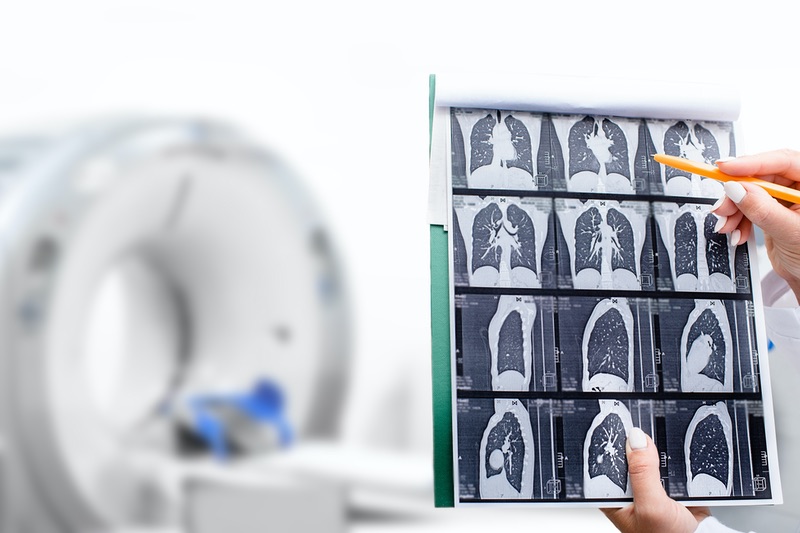Lung Cancer Treatments by Stage

Once you’ve been diagnosed with lung cancer, it is important to understand the treatment path that is available to you. The approach used to treat each patient’s lung cancer depends on a variety of different factors, the most important one being the type of lung cancer. Non-small cell lung cancer (NSCLC), the more common type of lung cancer, has a different set of treatment plans than small cell lung cancer (SCLC).
The other important factor used to decide which treatments are given to a lung cancer patient is the stage of cancer. The higher the stage, the more complex the treatment process.
What are the Stages of Lung Cancer?
Learn more about how the different types of lung cancer are staged.

Non-Small Cell Lung Cancer

Small Cell Lung Cancer
Treatments for Non-small Cell Lung Cancer by Stage
There are several stages of non-small cell lung cancer that can help direct the best course of treatment.
Stage 0
Stage 1
Stage 2
Stage 3
Stage 4A
Stage 4B
Cancer Treatments for the Stages of Small Cell Lung Cancer
Small cell lung cancer is categorized first as limited or extensive. The limited stage indicates that the cancer is located on one side or one lung. Cancer in the extensive stage has spread to both lungs, lymph nodes, or throughout areas of the body. Fluids may also fall under this stage. It can then be categorized under stages based on the tumor's advancement, progression, and size.
Limited Stage
Surgery is typically recommended in earlier stages for tumor removal. However, because small cell lung cancer isn’t typically found at this stage, it is less common. This is because you must be in good health to withstand the surgery and recovery and have a part (or all) of a lung removed. Oftentimes chemotherapy follows surgery for treatment. Radiation therapy may prevent any spread of cancerous cells to the brain. In most cases, chemotherapy and radiation will be given as treatment for small cell lung cancer. Small cell lung cancer is often widespread, making surgery difficult.
Extensive Stage
For extensive small cell lung cancer, chemotherapy and immunotherapy are often used because the cancer is too widespread in the lungs to be removed with surgery or targeted by radiation beams. However, radiation may also be given specifically to the brain to prevent the spread of the cancer cells to this area of the body. Laser therapy can be beneficial for those experiencing breathing difficulties from the cancer.
Lung Cancer Clinical Trials at RMCC
Lung cancer is under extensive research to find more ways to treat patients based on their specific genetic makeup and the stage of the cancer. Rocky Mountain Cancer Centers participates in these trials, giving our patients access to options that may not be available to patients everywhere just yet.
Talk to your oncologist about whether a lung cancer clinical trial might be right for you.
